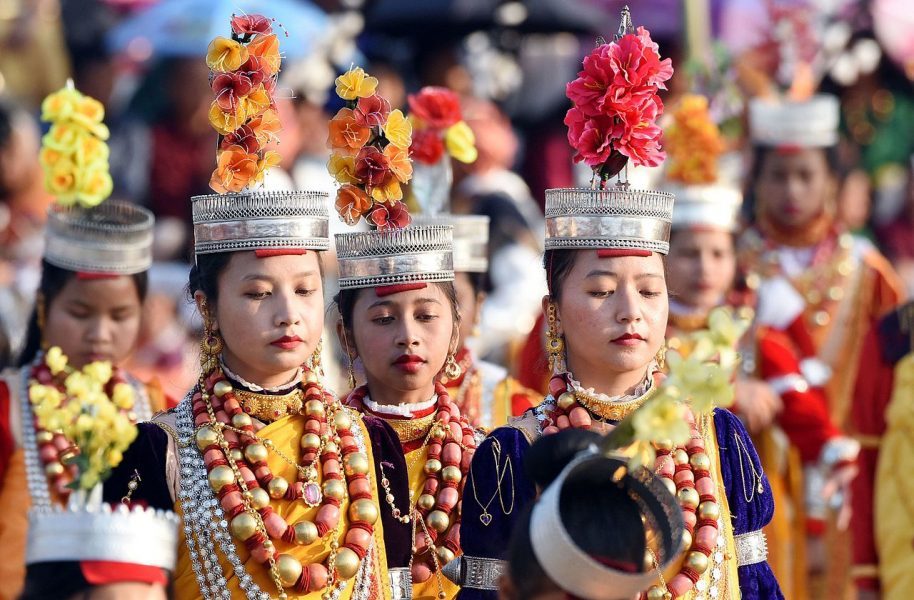
RSS in mission mode to remove converted tribals from Scheduled Tribes list
Sangh affiliate ABVKA to prepare report by December 15; move being seen as bid to divide tribals between converts and non-converts and weaken their fight for religious identity

The demand for the delisting of converted tribals from the Scheduled Tribe (ST) list is all set to become a new socio-political churner in India’s tribal heartland. The Rashtriya Swayamsevak Sangh (RSS) has decided to give it a major push ahead of the 2024 general elections.
If implemented, the move will strip almost the entire tribal population of the Northeast of its ST benefits, as the overwhelming majority of tribals in the region have adopted Christianity.
RSS body to prepare report
The RSS has entrusted the Akhil Bharatiya Vanvasi Kalyan Ashram (ABVKA) to prepare a comprehensive report by December 15 this year to find out, among other things, “the ideological foundation for proselytization.”
Besides, the report will explore the “evidence of faith and traditions in Bharat’s janjatis” and, also, “evidence of hostilities” allegedly triggered by the conversion.
Also read: Murmu made President, but Centre largely indifferent to tribals’ woes
“The report will provide the ideological and legal framework for the campaign against conversion,” said a senior functionary of the ABVKA, who is one of the RSS pracharaks deputed to lead the delisting campaign.
Into the tribal mind
According to the two-page concept note furnished for the preparation of the “comprehensive report” of 100 pages, inclusive of any supporting material, the report will “deep dive” into the understanding of “cultural, religious, and social breakdown at the onset of religious conversion of tribal societies.”
The idea, according to the concept note, is to “understand and discover the traditional religious belief system of janjatis of India, which (has been) sanatani in nature since its inception.”
Also read: A first: Amit Shah promises reservation for linguistic group in J&K
“The report will enable the judiciary, intellectuals, as well as government bodies, to broaden their understanding of colonial terms that facilitate the sense of ‘others’ (in reference to indigenous),” reads the concept paper The Federal could access.
“Indigenous” or not?
Interestingly, the report will also try to establish why tribals should not be regarded as indigenous communities in India.
“In the case of India, the idea of indigenous versus settlers has been under question for many decades. Popularly, when tribal populations are referred to as indigenous, it implies that other populations are non-natives or foreigners, which is not true for an ancient civilization such as India,” according to the concept note.
Also read: Manipur’s Hill-Valley divide turns ugly; Centre must act
“We have already started mass mobilization in support of the delisting demand. We are in the process of forming a committee in each tribal-dominated district to take the movement forward,” the ABVKA functionary told The Federal, refusing to be named, as he is not authorized to speak to the media about the plan.
“Massive movement” next year?
The ABVKA and the Janajati Suraksha Manch (JSM), the two tribal wings of the RSS, have already placed before the Centre their demand to deny reservation benefits to the tribals who have converted to non-Indic faiths.
Another Sangh-affiliate, Vishwa Hindu Parishad (VHP), has also adopted a resolution, asking the BJP-led Centre to amend the Constitution to delist tribals who converted to Christianity and Islam from the list of STs.
To prepare the ground for a “massive movement” next year, the ABVKA, along with the JSM, has already started organizing rallies in tribal areas since May this year to mobilise public opinion in support of the demand, the ABVKA functionary said.
Demand for a distinct religion
The mobilization is also being seen as RSS’s counter to the growing demand among tribals in certain states, particularly West Bengal, Jharkhand, Odisha, Assam, and Bihar, to recognize their indigenous faith as a distinct religion separate from Hinduism and other recognized religious practices.
Also read: Adivasi outfits pin hope on Droupadi Murmu to counter Hindutva agenda
The Trinamool Congress government in West Bengal and the Jharkhand Mukti Morcha government in Jharkhand have backed the tribal groups seeking recognition of their faith as Sarna dharma, an exclusive tribal religion based on nature worship.
The fight for Sarna dharma as an exclusive religion threatens to undermine the Sangh’s Hindutva outreach, thus weakening the BJP’s political prospects in the tribal areas. Though only 47 Lok Sabha seats are reserved for the STs, the community is the deciding factor in about 133 constituencies, almost a quarter of the 543 seats in the lower house of the parliament.
“The delisting demand is nothing but a move to divide the tribals between converts and non-converts and weaken our fight for religious identity,” said Ajit Mahato, a senior tribal leader in West Bengal.

